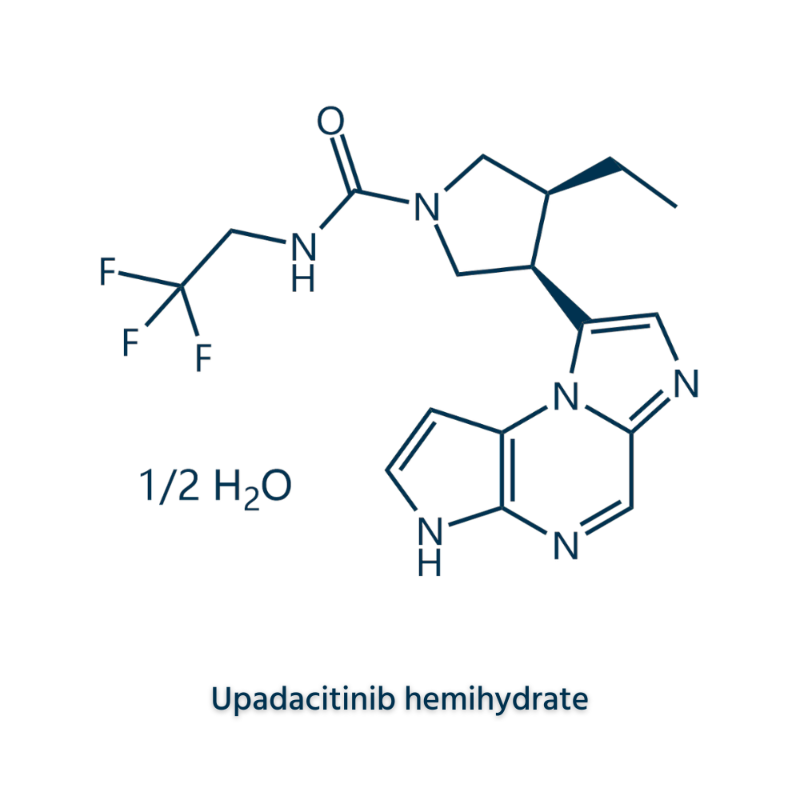-
Categories
-
Pharmaceutical Intermediates
-
Active Pharmaceutical Ingredients
-
Food Additives
- Industrial Coatings
- Agrochemicals
- Dyes and Pigments
- Surfactant
- Flavors and Fragrances
- Chemical Reagents
- Catalyst and Auxiliary
- Natural Products
- Inorganic Chemistry
-
Organic Chemistry
-
Biochemical Engineering
- Analytical Chemistry
-
Cosmetic Ingredient
- Water Treatment Chemical
-
Pharmaceutical Intermediates
Promotion
ECHEMI Mall
Wholesale
Weekly Price
Exhibition
News
-
Trade Service
May 31, 2020 /
prnewswire
BIOON/ -- Roche recently announced that the U.SFood and Drug Administration (
FDA) has approved the anti-PD-L1 therapy Tecentriq (Special, generic name: atez) Olizumab, Atzumab) united with Avastin (amvadin, generic name: bevacizumab, bevadin) for the treatment of non-reprecentable or metastatic hepatocellular carcinoma (HCC) patients who have not previously received systematic treatmentit's worth mentioning thatThe Tecentriq-Avastin combination is the first and only cancer immunotherapy program approved for the treatment of non-reccypreivisible or metastatic HCCdata from theof clinical trials in IMbrave150showed that the Tecentriq-Avastin combination of treatmentsignificantly longer than the standard nursing drug sorafenib (OS) and progressionless survival (PFS)"We are thrilled that today's approval of the Tecentriq-Avastin joint treatment for non-recative or metastatic HCC will provide a cancer immunotherapy option for patients with this invasiveliver cancer," said DrLevi Garraway, Chief Medical Officer and Global Head of Product Development, RocheThe application was reviewed under the Orbis initiative of the Oncology Review (RTOR) pilot project by the FDA, and helps to bring the new treatment to patients in the United States and around the world quickly "
The results of the IMbrave150 study are a huge change for patients with advanced liver cancer , one of the few cancers with rising mortality and limited first-line treatment options," said Dr Richard Finn, a professor of medicine at the David Geffen School of Medicine at the University of California, Los Angeles and director of the Signal Transduction and Treatment Program at UCLA's Jonson Comprehensive Cancer Center For the first time, we have developed a program that significantly improves survival, surpassing the standard treatment drug sorafenib for first-line hepatocellular carcinoma since 2007 and providing patients with opportunities to improve disease control while providing good tolerance "
this approval, based on the results of the Phase III IMbrave150 study (NCT03434379) This is an open label, multicenter, randomized Phase III study, conducted in patients with non-rectructable, pre-localized, or metastatic HCC who were previously not systematically treated, and investigated the efficacy and safety of tecentriq and Avastin combination treatment programs relative to the standard care drug, the polykinase inhibitor sorafenib In the study, patients were randomly assigned at a 2:1 ratio and received tecentriq-Avastin combination therapy (n-336) or Sorafenni (n-165) until an unacceptable toxic reaction occurred or the clinical benefit was lost The common primary endpoint of the study was total survival (OS) and non-progressive survival (PFS) determined by an independent assessment agency based on the solid tumor efficacy evaluation criteria 1.1 (RECIST 1.1) results showed that the study reached a common primary endpoint: both tecentriq-Avastin combined treatment groups showed statistically significant and clinical improvements compared to the Sorafeni treatment group It is worth noting that IMbrave150 is the first Phase III Cancer Immunotherapy Study to show improvements in OS and PFS in patients with non-rectructable or metastatic HCC compared to Sorafini specific data are: Compared to the Sorafeni group, the total survival of the Tecentriq-Avastin combined treatment group was significantly longer (median OS: NE vs 13.2 months), the risk of death decreased by 42% (HR?0.58, 95% CI: 0.42-0.79, p-0.0006), and an increase in the 12-month survival rate (67.2% vs 54.6%) In addition, compared to the Sorafeni group, the non-progressive survival of the Tecentriq-Avastin group was significantly longer (median PFS: 6.8 months vs 4.3 months), and the risk of disease progression or death decreased by 41% (HR-0.59, 95% CI: 0.47-0.76, p 0.0001) the study, 38 percent of patients in the Tecentriq-Avastin combined treatment group had severe adverse reactions
(level3-4), with the most common (-2%) being gastrointestinal bleeding, infection, and fever The results were published in May in the New England Journal of Medicine (NEJM), the world's leading medical journal liver cancer is a leading cause of death worldwide, particularly in Asia, and hepatocellular carcinoma (HCC) is the most common type of liver cancer HCC occurs mainly in patients with chronic hepatitis (HCV) or alcohol-induced cirrhosis, usually at an advanced stage at the time of diagnosis, with very limited treatment options IMbrave150 is the first phase III cancer immunotherapy study to improve OS and PFS in the most common liver cancer treatment The Tecentriq and Avastin combination is also the first treatment to improve total survival in patients with non-resocative hepatocellular carcinoma who were previously not systematically treated in more than a decade the U.S The FDA has qualified for breakthrough drugs for the Tecentriq-Avastin combination of first-line treatment sedative or metastatic HCC In China, the program was accepted by China's State Drug Administration (NMPA) in January Roche has developed an extensive development plan for Tecentriq, including a number of ongoing and planned Phase III studies involving multiple types of lung cancer, genitourinary cancer, skin cancer, breast cancer , gastrointestinal cancer, gynaecological cancer and head and neck cancer This includes studies of Tecentriq alone or in combination with other drugs Tecentriq is a PD-(L)1 tumor immunotherapy designed to bind to a protein called PD-L1 expressed on tumor cells and tumor inlatuated immune cells, blocking its interaction with PD-1 and B7.1 receptors By inhibiting PD-1, Tecentriq activates T-cells, which have the potential to be used as a basic combination therapy for cancer immunotherapy, targeted drugs, and chemotherapy for various types of cancer Avastin is an angiogenesis inhibitor that is targeted in combination with angiother growth factor (VEGF) VEGF plays an important role in the generation and maintenance of angiogenesis in the life cycle of tumors Avastin infects the tumor's blood supply by binding directly to VEGF, preventing it from interacting with receptors on blood vessel cells The blood supply of tumors is considered to be key to the ability to grow and metastasize in the body tumor the combination of Tecentriq and Avastin has strong scientific basis, and the Tecentriq-Avastin combination has the potential to strengthen the immune system to fight tumors In addition to having a given anti-angiogenic effect, Avastin can further enhance Tecentriq's ability to restore the body's anti-cancer immunity by inhibiting VEGF-related immunosuppression, promoting T-cell tumor immersion, and initiating T-cell response to tumor antigens in the United States, the FDA approved tecentriq and Avastin plus chemotherapy (capland and yew alcohol) in December 2018 for first-line treatment of adult patients with no EGFR or ALK genomic tumor metastatic non-squamous non-small cell lung cancer (NSq NSCLC) The approval was based on data from group B patients in the IMpower150 study: in patients with active treatment of wild type (ITT-WT), tecentriq plus A-chemotherapy significantly extended the survival of patients compared to Avastin-A-Chemotherapy (median OS: 19.2 months vs 14.7 months, HR-0.78, p-0.016) (BioValleyBioon.com) original source: FDA appapp
roves Genentech's Tecentriq in Combination With Avastin for People With The Most Common Form Liver of The Cancer







